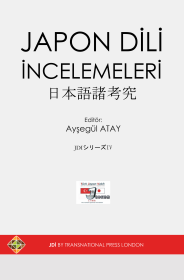Japonca Eğitiminde Modern Senryūların Ders Malzemesi Olarak Kullanımı
Using Modern Senryūs as a Lesson Material in Japanese Education
Author(s): Güliz Enbatan
Subject(s): Education, Other Language Literature, Cultural Anthropology / Ethnology, Methodology and research technology
Published by: Transnational Press London
Keywords: Senryū; Japanese culture; language usage; honne; Japanese short poem;
Summary/Abstract: In Japanese society, honne (one's true feelings) and tatemae (the feelings of real emotions concealed, one's feelings accepted by society) are regarded as two important concepts. Although these two concepts exist in all societies, they are more common in Japanese society. Japanese people express their true feelings (honne) which they avoid from presenting in daily life through senryūs. Senryū is a Japanese short poem which is written 5-7-5 in total 17 morae. In these poems, various subjects related to human and society are conveyed critically or in a sense of humor (satire, humor, black humor etc.). In this study, it was aimed to inform Japanese language learners about the senryūs which is a literal enrichment in Japanese culture and to increase awareness of the learners on word games, cultural elements and linguistic usages in modern senryū. Also, this study highlighted to keep the attention of the Japanese language learners generally having reading on literary texts such as stories, novels etc. on Japanese poetry and to inform them about senryū culture.
Book: Japon Dili İncelemeleri / 日本語諸考究
- Page Range: 185-200
- Page Count: 16
- Publication Year: 2018
- Language: Turkish
- Content File-PDF

